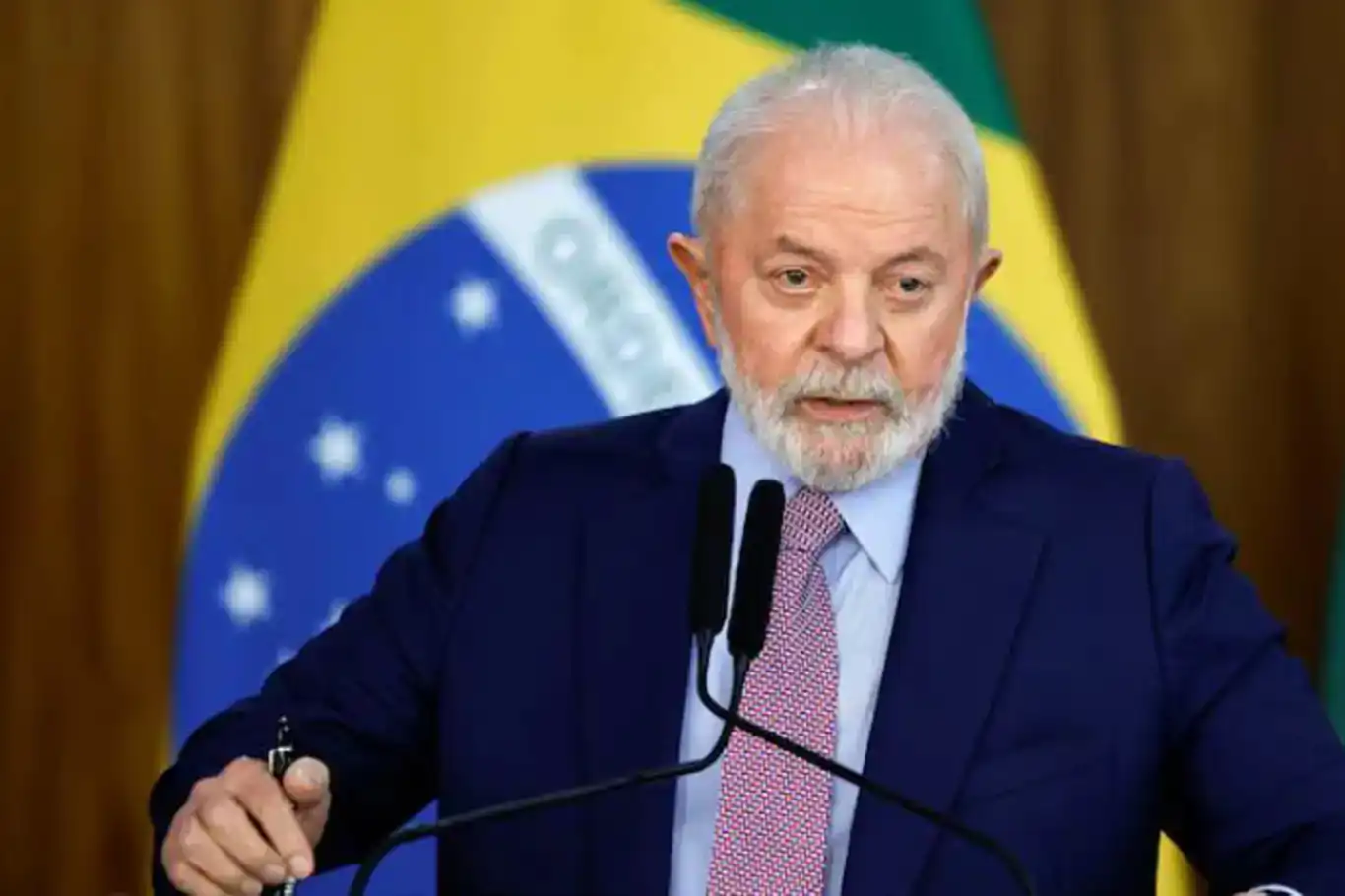Lula blasts Trump’s trade policy, seeks BRICS support


Brazilian President Luiz Inacio Lula da Silva announced plans to engage leaders of India, China, and other BRICS nations to address U.S. sanctions and trade policies under President Donald Trump.
Speaking at a press conference in Brasilia, Lula accused the U.S. of pursuing unilateralism, warning that such actions weaken smaller nations' bargaining power against the economic might of the United States.
“What President Trump is doing is implicit but clear—he wants to replace multilateralism with unilateralism,” Lula stated. “He is establishing a system where he can negotiate one-on-one with countries. What bargaining power can a small Latin American country have against the U.S.? None.”
Lula emphasized the need for a collective diplomatic response, urging BRICS nations—Brazil, Russia, India, China, South Africa, and other developing members—to unite against what he described as aggressive U.S. trade policies, particularly newly imposed tariffs. “We cannot remain silent on the sanctions,” he said. “Why is Trump targeting multilateral structures, and what is his aim? We need to find answers to these questions together.”
The Brazilian leader revealed plans to contact Indian Prime Minister Narendra Modi on Thursday, August 7, 2025, followed by discussions with Chinese President Xi Jinping and other BRICS leaders. Lula’s initiative comes amid escalating tensions over U.S. tariffs, which have targeted key exports from Latin America, Asia, and Africa, prompting concerns about global trade disruptions.
Since Lula’s announcement, sources indicate that Brazil has begun preliminary talks with BRICS counterparts to coordinate a response. According to a post on X dated August 7, 2025, Brazilian diplomats are preparing a joint statement with Russia and South Africa to address the economic impact of U.S. sanctions on developing nations. Meanwhile, India and China have yet to publicly confirm their participation in Lula’s proposed talks, though analysts expect both nations to engage given their own trade disputes with the U.S.
The U.S. tariffs, introduced in early 2025, have targeted sectors like agriculture, steel, and technology, affecting BRICS economies. Brazil’s soybean and beef exports, critical to its economy, face steep duties, while China has reported disruptions in its electronics supply chain. The Trump administration has justified the measures as efforts to protect U.S. industries, but critics, including Lula, argue they destabilize global trade frameworks like the World Trade Organization.
Lula’s call for unity aligns with broader BRICS efforts to strengthen economic cooperation and reduce reliance on Western-dominated financial systems. The group’s upcoming summit in October 2025 is expected to prioritize discussions on countering unilateral sanctions, with Lula likely to push for a unified trade strategy.
The U.S. State Department has not yet responded to Lula’s remarks, but a spokesperson reiterated Washington’s commitment to “fair and reciprocal trade.” With tensions rising, the international community awaits the outcome of Lula’s diplomatic outreach to BRICS leaders. (ILKHA)
LEGAL WARNING: All rights of the published news, photos and videos are reserved by İlke Haber Ajansı Basın Yayın San. Trade A.Ş. Under no circumstances can all or part of the news, photos and videos be used without a written contract or subscription.
The United States has revoked the visas of Palestinian President Mahmoud Abbas and more than 80 senior Palestinian officials, effectively blocking them from attending next month’s UN General Assembly in New York.
The Al-Qassam Brigades, the armed wing of Hamas, executed a daring ambush on Friday in the al-Zaytoun neighborhood of Gaza City, leaving four Israeli occupation soldiers missing and causing heavy casualties, according to Israeli media reports.
Abu Obeida, the official spokesperson of the Al-Qassam Brigades, issued a powerful warning Friday evening, stressing that the Israeli occupation’s criminal attempts to fully invade Gaza will backfire with devastating consequences for its army and leadership.
Munir al-Bursh, Director General of the Ministry of Health in Gaza, has declared that Israel’s ongoing attempts to forcibly displace the residents of Gaza City are doomed to fail, stressing that Palestinians remain steadfast despite relentless bombardment and unprecedented suffering.